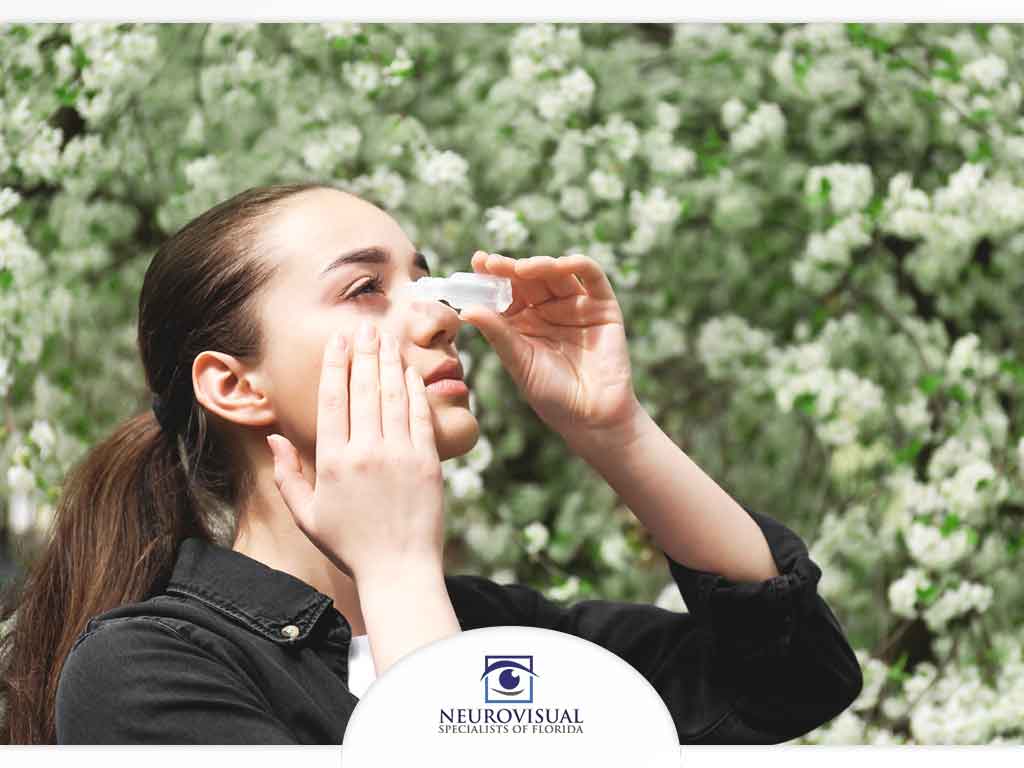Approximately 50 million Americans suffer from seasonal allergies, which affect both adults and children. Along with sneezing and runny nose, patients also suffer from itchy, watery red eyes and swollen eyelids.

Airborne allergens like pollen, mold and dust usually trigger eye allergies. Some people also experience reactions to cosmetic products and eye drops containing preservatives. In today’s post, your local binocular vision dysfunction specialist, I See Vision Care, shares tips on managing seasonal eye allergies.
1. Indoor Allergens – As much as you can, avoid allergens you are allergic to. Stay indoors when the pollen count is high. Replace your air conditioning filter to minimize airborne allergens in your home. Avoid using window fans as they can drive pollen and mold indoors.
2. Outdoor Allergens – If you have to go outside during allergy season, wearing eyeglasses or sunglasses can help protect your eyes from pollen. Remember that rubbing your eyes will only irritate them more.
3. Dealing With Pets – Immediately wash your hands after coming into contact with animals. Keep pets you’re allergic away from your home. If the animal needs to stay indoors, keep it away from your bedroom.
4. Over-the-Counter Eye Drops – There are various non-prescription eye drop medications that can help alleviate itchiness, redness and watery eyes from allergies. You can ask your eye doctor for a recommendation.
5. Prescription Eye Drops – See your eye doctor if your allergy symptoms are getting worse and aren’t responding to non-prescription eye drops. Medications that may be recommended by your specialist include antihistamines, decongestants, mast cell stabilizers, non-steroidal anti-inflammatory drugs and steroids.
6. Stop Wearing Contacts – Allergens can build up in your contacts during allergy season. It’s recommended that you switch to glasses. You can also try daily disposable contact lenses that you throw away after each use. Completely stop wearing contacts if your symptoms are affecting your eyes.
Visit your eye doctor for proper diagnosis and treatment options. At I See Vision Care, we are your local provider of eyecare services. We can also help you with issues related to TBI concussion and vision. Call us at (561) 733-9008 or complete our online form to request an appointment. We assist patients in Boynton Beach, FL.


